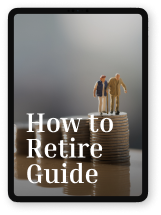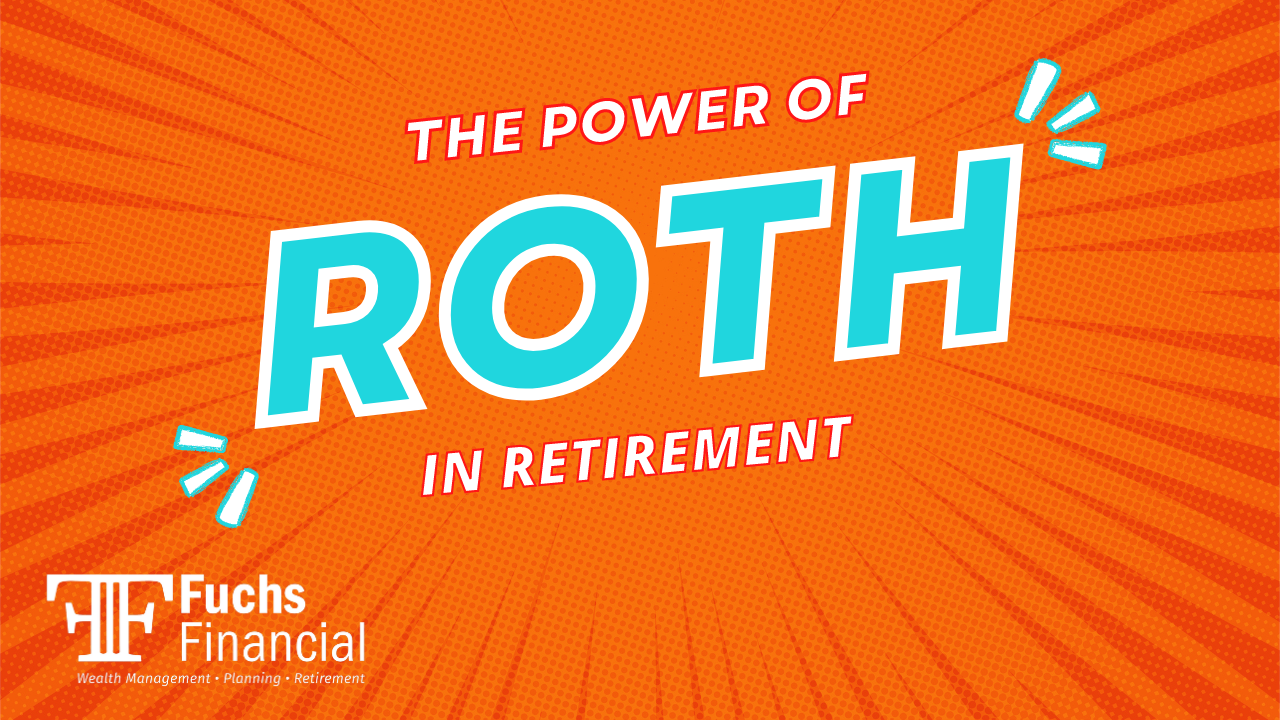Saving an adequate amount of money for retirement can seem like a daunting, sometimes even impossible, task. Individuals want to ensure that they can maintain a similar or improved quality of life to the one they have become accustomed to during their working years, while also stretching their savings to last as long as possible. Unforeseen expenses such as healthcare, long-term care, or helping a family member in crisis tend to be worrying factors that make people question if they have truly saved enough. This article will discuss the important aspects of income planning for retirement in order to break down the process into manageable pieces.
The Value of Retirement Income Planning
Retirement income planning can help ensure a proper balance between guaranteeing income, lowering risk, and maintaining a legacy for any benefactors. Making sure money lasts as long as possible involves a combination of
- a great income strategy,
- a strict savings plan, and…
- efficient expense management.
The earlier in life all of these factors are thought through and implemented, the better off a person is likely to be by the time they are retirement age. But not to worry if you have not started yet, the best time to begin on a path to a sustainable retirement is now.
Long-term Planning A-Z
Being comprehensive in the planning stages of retirement allows individuals to have the peace of mind knowing that they have done all that is necessary in order to set themselves, and those around them, up for success.
Income Strategy: Investments & Expanding Your Wealth
A proper mix of investments can lead to increased capital that is at an individual’s disposal during the later years of their life. A good mix of investment vehicles can diversify a portfolio which helps expand income while reducing risk. For a person with a retirement focus, a recommended mix of investments would be stocks for the purpose of growth, bonds for safety/risk minimization, and alternative assets, such as commodities, for diversification. Commodities can include things such as gold, silver, and oil, but it is generally suggested that this should be an individual’s lowest investment sector due to volatility and lack of knowledge.
Investing while in retirement is a great way to ensure income outside of pensions or Social Security. While retired people typically have more time to research the market and thus create more autonomy in the process, it is important to note that taking complete control of your investment strategies can be risky. If a person desires to completely take over their personal investing, it is advisable to still retain a wealth manager or other financial service agent to review any possible changes and explain the risks.
Savings Plan: IRA Accounts, Annuities & More
Having a great savings plan starts with choosing the proper vehicle(s) to allocate wages into while still working.
Most employers offer traditional 401(k) or 403(b) plans, which are surefire ways to have automated payments towards retirement come directly out of monthly income.
In addition to these types of accounts, there are also IRA plans, which involve contributions made outside of company-based plans. Traditional IRAs reduce taxable income, while Roth IRAs allow contributions post-tax, which means that the money withdrawn during retirement is free from any taxable burden. Rollover IRAs are another popular option as they allow an account holder to convert funds from other accounts, such as a company-based 401(k), into a Traditional or Roth IRA. However, there are certain liabilities that should be discussed with a professional before doing so.
Annuities are another option to help ensure the longevity of savings during retirement. These are products that are sold outside of company plans and they work by paying out sums of money over a period of time with small amounts of interest gained. Although they are a safe option, they are often binding and, thus, a person should be sure of their retirement period and strategy before purchasing.
Expenses Management: Tax Reduction & Medicare Benefits
Limiting taxable liabilities before and during retirement is key to preserving present and future capital. Liabilities are based on the percentage of an individual’s income after deductions and tax credits, but it is important to note that many factors can decrease this amount. Some of the ways this can be done are by increasing retirement plan contributions, selling investments that have lost value and deducting those losses, and charitable donations, amongst others.
Expenses that typically use the largest portion of income before and during retirement are:
- Housing
- Healthcare
- Food
- Entertainment
- Transportation
Investments in real estate early on in an individual’s career can pay off in the long-term as that person may be able to live off the rent of these properties in the future or in the property itself. Food, entertainment, and transportation are all costs that a retiree may adjust based on available income during retirement, but it is important to assess the amount an individual is spending on these categories while still working and then try to accurately assess the figure needed to live off of while retired. Healthcare can also be a massive expense, thus, paying into Medicare can help alleviate some of this pressure by allowing the government to subsidize needed care.
Impact of Inflation on Income
The retirement income gap refers to the deviation between an individual’s income versus their expenses in their golden years. In many cases, Social Security, pensions, and other forms of retirement income may simply not be enough to cover the costs associated with this time period.
This problem is only exacerbated by inflation, which has been historically high in the last several years. The 100-year inflation rate sits around 3.8%, but in 2021-2022, the inflation rate averaged a staggering 6.75%. Typically, the stock market is able to outpace inflation, but in times of slow economic development, the S&P 500 growth can fall below the inflation rate for a given year. In order to plan for future periods of heavy inflation, people should set up three different asset “buckets;” one for income, one for safety, and one for growth.
- The bucket for income should be able to cover around 90% of an individual’s typical expenses.
- The safety bucket should be reserved for when the market takes a big hit or is unable to outgrow the inflation rate. This bucket can then be used to subsidize income during harsh times.
- Lastly, the growth bucket should remain untouched during a person’s working years and for the first couple years of retirement, but should then be funneled into the income bucket later on in retirement, as well as being used to help build a legacy.
Recession Income Planning
While the definition of a recession may seem a bit ambiguous now, it is always important to note how to income plan while safeguarding retirement funds during a period of declined economic activity. Though it may be difficult with a fluctuating job market, a person must try to keep up with contributions to their savings plans as best as possible.
Adding an additional source of income, such as a small side job, can lead to more money becoming available to invest during market corrections. This, in-turn, can help lead to higher returns on investments and more money allocated towards retirement. Paring down on excess spending and saving extra is a great way to safeguard assets in the case of a layoff or reduction of salary. An individual will not have to pull from their retirement savings if they have enough money saved in a short-term CD or savings account to make up for a lack of income during certain time periods.
Diversifying investments into real estate or stocks can help as well and also carry tax advantages that can be leveraged to ease personal liability for a given year when the market may be down. Ultimately, it helps to talk to a professional in order to ensure that short-term recession-based income plans still align with retirement strategies in the long-term.
Reducing Risk While Staying Flexible
 The key to reduction of risk while income planning for retirement is the combination of several factors, many of which have been previously touched on in this article.
The key to reduction of risk while income planning for retirement is the combination of several factors, many of which have been previously touched on in this article.
The first key step in this process is for a person to diversify their portfolio and transition from risky holdings, such as small cap stocks, to less volatile alternatives, such as bonds or money market accounts as they approach retirement age. Diversification also extends to individual asset classes, for example, an individual may want to invest more in large cap stocks before retirement due to their value compared to small cap stocks that carry a higher return potential but with more risk.
Having cash on hand is also a way to reduce risk, as this allows a person to pay for unexpected expenses that may occur without having to dip into investment accounts that may be down due to market conditions.
Another strategy that helps retirees stay flexible and balanced is to keep withdrawal amounts consistent over time. This will allow a person to have cash on hand for needed expenses, but mitigate the risk of reducing portfolio funds to a point in which they are not earning required returns to sustain growth.
Pension Plans
Pensions are a quickly fading form of retirement benefit that the government and some companies offer. Most firms now offer defined contribution plans, which are more volatile due to the fact that they are subject to market performance.
If an individual does still have a pension plan, it is important to note that this may not cover all expenses for retirement. As explained throughout the article, it is pertinent for all individuals to budget for their wants and needs during their golden years, but it is especially crucial for people with pensions to do so in order to determine what other investment vehicles they may need in order to cover all of their expenses.
In some instances, government employees with these plans may not have Social Security taxes withheld, which can subject them and their families to significantly reduced SS benefits during retirement. This is important to note as it can significantly affect retirement income and change budgeting for this period in a person’s life.
How We Can Help
We here at Fuchs Financial understand that every person’s situation is unique and it can be hard to decide on the best steps to take in order to feel secure. Ben and his advisors enjoy the process of helping guide people to a place in which their portfolio’s feel protected yet still prone to growth. Let us assist you in your journey towards financial stability and freedom by custom tailoring a plan to fit your needs and desires.
Getting Started
Schedule a free, non-obligatory, 15 minute phone consultation with a member of our team via the Calendly link below:
Investment advisory services offered through Foundations Investment Advisors, LLC (“Foundations”), an SEC registered investment adviser. Ben Fuchs authors this commentary, which may include information and statistical data obtained from and/or prepared by third party sources that Foundations deems reliable but in no way does Foundations guarantee the accuracy or completeness. Foundations had no involvement in the content and did not make any revisions to such content. All such third-party information and statistical data contained herein is subject to change without notice and may not reflect the view or opinions of Foundations. Nothing herein constitutes legal, tax or investment advice or any recommendation that any security, portfolio of securities, or investment strategy is suitable for any specific person. Personal investment advice can only be rendered after the engagement of Foundations for services, execution of required documentation, including receipt of required disclosures. Any mention of a particular security and related performance data is not a recommendation to buy or sell that security. Foundations manages its clients’ accounts using a variety of investment techniques and strategies, which are not necessarily discussed in the commentary. All investments involve risk and past performance is no guarantee of future results. Advisory services are only offered to clients or prospective clients where Foundations and its advisors are properly licensed or exempted. For more information, please go to https://adviserinfo.sec.gov and search by our firm name or by our CRD # 175083. Rates and Guarantees provided by insurance products and annuities are subject to the financial strength of the issuing insurance company; not guaranteed by any bank or the FDIC.















